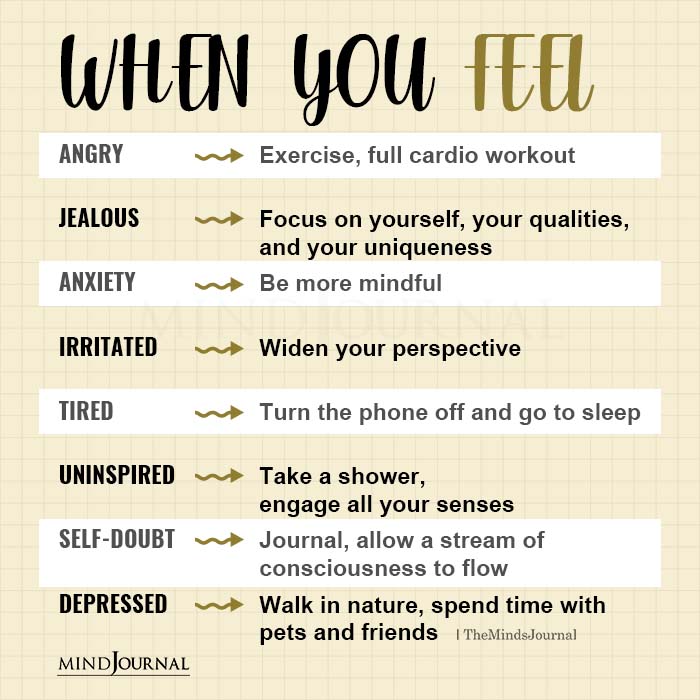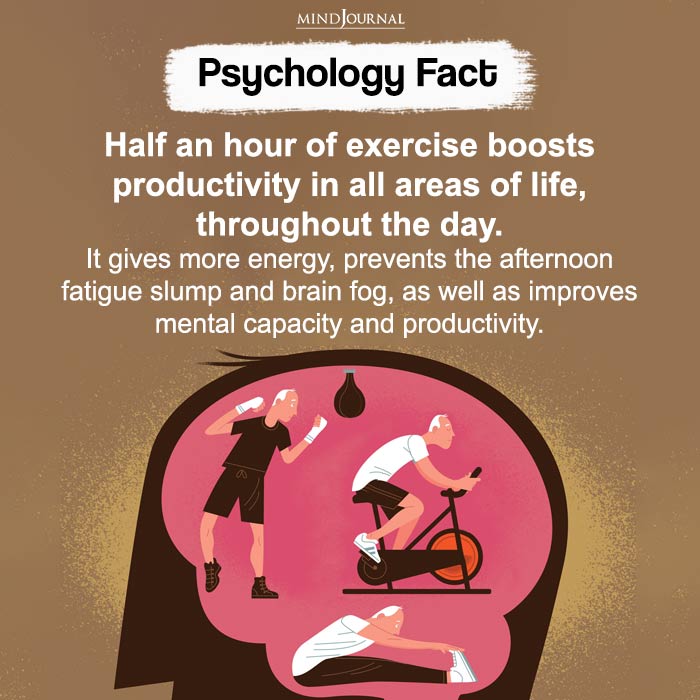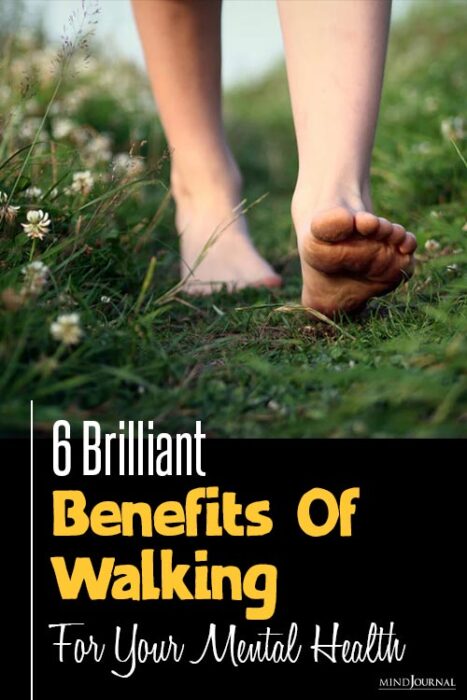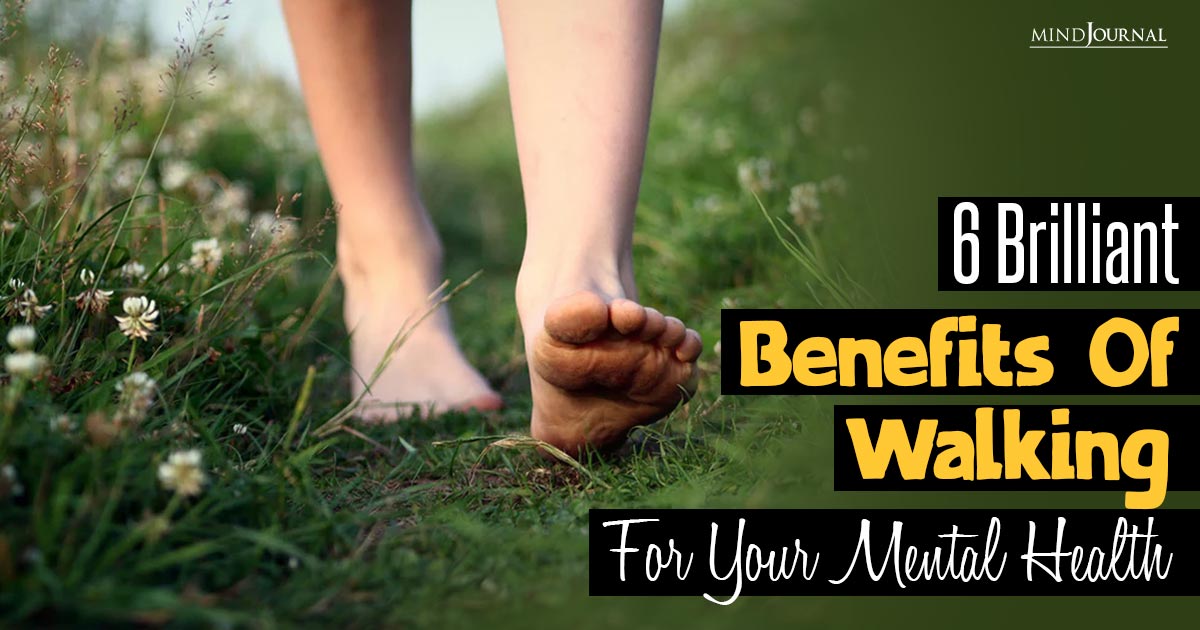Walking is so underrated when it comes to ensuring mental well-being. There are so many powerful benefits of walking that can do wonders for our mental and emotional health. This article is going to talk about some of the best mental health benefits of walking.
Boost your mood, energy level, confidence, and more simply by getting your steps in.
Taking a brisk walk is a great way to clear your head, calm your mood, and keep you healthy. It may seem simple, but walking can have a powerful effect on your mental health, and the good news is that it’s free.
Whether it’s a stroll in the woods, a walk on the beach, or a jaunt around a park, walking can keep you both mentally and physically fit.
Related: The Art Of Grounding: 7 Healing Benefits Of Walking Barefoot Outside
How can walking improve your mental health?
Walking isn’t just a great way to get around; it can also have a profound effect on various bodily functions. The physical benefits of walking are well known, with improved heart health, blood sugar levels, and immune function being just some of the gains you can expect from regular walking.
Plus, the physical benefits can also leave you in a healthier frame of mind.
Benefits of Walking
1. Improved mood
Research tells us that walking can help to improve mood in a variety of ways. Aerobic exercise (the type of exercise that walking is) has been proven to reduce anxiety and depression.
These improvements are likely due to the increased blood circulation that occurs during aerobic exercise. Increased blood circulation also better equips you to handle stress.

2. Increased creativity
One study found that creativity increased in participants who walked compared to those who remained seated. The study also found that walking outside was more effective at increasing creativity than walking inside on a treadmill.
It’s thought that walking frees up the flow of ideas. So, next time you find yourself in a creativity rut, get outside for a quick walk.
3. Boosted energy levels
As we know, walking can help increase your circulation and, therefore, increase the flow of oxygen throughout your body. This boost in oxygen can lead to a boost in the production of the hormones cortisol and epinephrine, which is good news for your energy level.
In fact, walking can provide you with such a boost that it has been found to be more energizing than low-dose caffeine. One study found that sleep-deprived women experienced more energizing effects from brief stair walking than from 50 mg of caffeine.
4. Body confidence
Walking might seem slow going compared to activities like running, but it is an effective calorie burner. Regular walks can help you to lose weight, get fit, and importantly, gain confidence.
Body confidence and increased fitness levels can help you to attain overall self-confidence and, in turn, improve your mental health. Walking is also a good entry-level activity for those who don’t enjoy exercising.
Related: 7 Ways Hiking Benefits Your Body, Mind, and Spirit
5. Social opportunities
Going for a walk requires nothing more than yourself, but that doesn’t mean it has to be a lonely experience. Walking can help you to connect to your neighborhood, whether that’s by simply seeing more of it, joining others in a walking group, or by meeting new people on your route.
This increased level of social contact can help to boost your self-esteem, mood, and overall quality of life.
6. Improved sleep
Getting a good night’s sleep is key to maintaining good mental health status. Lack of sleep can lead to anxiety, depression, lethargy, and increased irritability.
Studies have shown that walking can help you ensure you experience quality sleep. One study found that participants who took more steps experienced better sleep quality and duration than those who took fewer steps. So if you need a sleep aid, build a walking habit into your schedule.
“First, that morning walk calms me through something called optic flow.… The actual movement of objects past us as we walk quiets some of the circuits that are responsible for stress.… If taking an outdoor trek isn’t safe, moving around indoors can also create optic flow.” —Andrew Huberman, PhD, Stanford University, Associate Professor of Neurobiology and of Ophthalmology

How to Incorporate Walking Into Your Routine
If you’re interested in walking, all you need is a pair of walking shoes and to choose where to go. A scenic outdoor walk among trees or along a body of water can keep you walking for longer, but a simple stroll in any area can be just as interesting.
Safety is important while walking. Be sure to choose a route that will keep you safe from car traffic. Consider walking during popular times to ensure a good stream of other pedestrians. Bring sufficient water, snacks, and sunscreen.
Related: Three Easy Exercises To Lower Blood Pressure Immediately
And remember, you can always start small. Doing one extra lap around the block on your walk home from work, or parking a little farther away from the grocery store than usual, are easy ways to slowly introduce more walking into your routine.
Yes, I want to learn more about Intentional Living.
Citations
Erickson, M. (2020). Setting your biological clock, reducing stress while sheltering in place. Scope. https://scopeblog.stanford.edu/2020/06/03/setting-your-biological-clock-reducing-stress-while-sheltering-in-place/ Oppezzo, M., & Schwartz, D. L. (2014). Give your ideas some legs: The positive effect of walking on creative thinking. Journal of Experimental Psychology, Learning, Memory, and Cognition, 40(4), 1142–1152. https://doi.org/10.1037/a0036577 Randolph, D. D., & O’Connor, P. J. (2017). Stair walking is more energizing than low dose caffeine in sleep deprived young women. Physiology & Behavior, 174, 128–135. https://doi.org/10.1016/j.physbeh.2017.03.013 Sharma, A., Madaan, V., & Petty, F. D. (2006). Exercise for mental health. Primary Care Companion to the Journal of Clinical Psychiatry, 8(2), 106. https://doi.org/10.4088/pcc.v08n0208a Sullivan Bisson, A. N., Robinson, S. A., & Lachman, M. E. (2019). Walk to a better night of sleep: Testing the relationship between physical activity and sleep. Sleep Health, 5(5), 487–494. https://doi.org/10.1016/j.sleh.2019.06.003 Umberson, D., & Montez, J. K. (2010). Social relationships and health: a flashpoint for health policy. Journal of Health and Social Behavior, 51 Suppl(Suppl), S54–S66. https://doi.org/10.1177/0022146510383501
Written By Gia Marson Originally Appeared On Dr. Gia Marson









Leave a Reply
You must be logged in to post a comment.